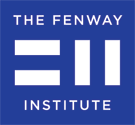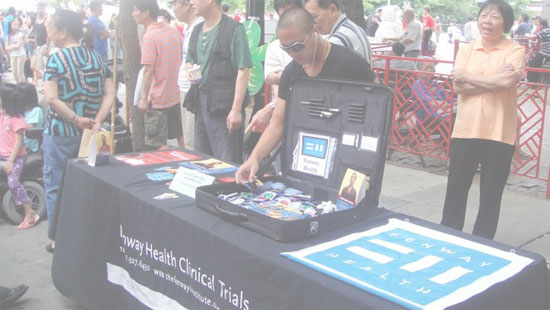The Fenway Institute in partnership with the Multicultural AIDS Coalition launched Project S.O.S. (Saving OurSelves), the Boston site of a national research study designed to address high rates of HIV infection among Black gay, bisexual and other men who have sex with men (MSM), who currently have the highest rates of HIV acquisition in the United States. The study successfully enrolled 237 people in the Boston area. Project S.O.S. is evaluating whether the following HIV prevention strategies are accepted by Black gay, bisexual and other MSM:
- Providing testing, counseling and treatment referrals for HIV and other sexually transmitted infections
- Encouraging Black MSM to refer their sexual partners to participate in the study
- Providing a peer health navigator who is trained to help Black MSM access the health care, services and treatment that they need whether they are HIV-infected or are at high-risk of infection
The study also captures information that will allow for a better understanding of Black gay, bisexual and other MSM lives and experiences, their risks, their attitudes, the prejudices they face and the strengths that they have, and how all of this relates to risk for HIV infection.
In 2010, the Center for Population Research in LGBT Health launched the Population Research in Sexual and Gender Minority Health (PRISM) Data Archive. The Center is a cross-institutional collaborative research project housed at The Fenway Institute that brings together scientists and trainees from around the country and The PRISM archive provides students and researchers anywhere in the world access to high quality datasets in LGBT health through the Center’s website at lgbtpopcenter.org/datasets. The archive includes 236 data records, each including one or more variables related to sexual orientation and/or gender identity. The PRISM archive is a one-of-a-kind resource for scholars interested in understanding and improving health for sexual and gender minorities.
In March of 2010, The Fenway Institute’s Judith B. Bradford, PhD, and Harvey J. Makadon, MD, were appointed to the first ever LGBT issues committee at the Institute of Medicine (IOM) of The National Academies, advisors to the nation on science, engineering and medicine. The Committee on Lesbian, Gay, Bisexual, and Transgender Health Issues and Research Gaps and Opportunities is conducting a review and preparing a report assessing the state of the science on the health status of lesbian, gay, bisexual, and transgender populations; identifying research gaps and opportunities related to LGBT health; and outlining a research agenda that will assist the National Institutes of Health (NIH) in enhancing its research efforts in this area. Additionally, the committee is considering research training needs to foster the advancement of knowledge about LGBT health and identifying impediments that hinder such advancement. At the end of the Clinton administration, the IOM conducted a workshop study on lesbian health that was critical in developing this area of science. This more extensive study of the broader LGBT population will be used by the NIH for planning purposes and it's likely that other federal agencies and the United States Congress will take notice of its findings. |

|
|
On April 26 and 27, 2010, The Fenway Institute hosted a meeting of nearly 100 of the United States’ top researchers, key stakeholders, and public health leaders to discuss the current state of knowledge about the sexual health of American gay, bisexual and other men who have sex with men (MSM) and the implications of these findings for HIV and STD prevention programs and further health research. Titled “The Sexual Health of Gay Men and Other Men Who Have Sex with Men: HIV/STD Prevention Plus,” the meeting was sponsored by the National Institute of Health’s Office of AIDS Research and, the Centers for Disease Control and Prevention’s National Center for HIV/AIDS, Viral Hepatitis, STD, and TB Prevention, with additional support from The Foundation for AIDS Research (amfAR) and John Snow, Inc., and was held at Fenway’s Ansin Building conference center.
Attendees discussed HIV and STD transmission within the broader context of sexual health, and speakers addressed many of the structural, social and cultural factors that influence individual sexual health. Topics included:
- the intersection of race, sexual orientation, identity, and culture
- social dynamics, sexual networks, and urban migration
- the influence of the internet on sexual health and HIV risk-taking
- mental health, healthy development and resiliency among MSM
Presentations from the meeting can be downloaded from The Fenway Institute’s web site and a supplement of articles related to the meeting are expected to be published in spring 2011.
The Fenway Institute’s Network for LGBT Health Equity (formerly known as the LGBT Tobacco Control Network) funded The National Gay and Lesbian Task Force and CREDO Action to produce the 2010 Queer the Census campaign. Queer the Census was an initiative working for greater LGBT inclusion in the United States Census by distributing Queer the Census stickers that could be used to seal Census envelopes to proclaim your LGBT status. 61,000 people signed the Queer the Census petition and asked for stickers to use on their Census envelopes. While the data from these stickers was not counted as a part of the 2010 Census, the campaign aimed to raise awareness at the federal level as we advocate for more inclusion of LGBT people in data collection efforts, including the Census.
The Fenway Institute’s Navigation Project uses Peer Health Navigators to reach those at highest risk for health disparities and connect them to life-saving services. Navigation clients include gay and bisexual men, transgender individuals, those affected by crystal methamphetamine use, and other individuals at high-risk for health disparities. During fiscal year 2010, Fenway’s Peer Health Navigators held more than 2,000 individual and group client meetings. They met their clients at Fenway, at other community-based organizations and out in the community and often accompanied them to doctor visits or to help them access services. The Navigation Project works in collaboration with The Multicultural AIDS Coalition to provide health navigation to Black gay, bisexual and other MSM. Ask Doctor Cox is the online component of the Navigation Project, aimed at gay and bisexual men, which answered more than 550 medical and behavioral health questions last year. |

|



